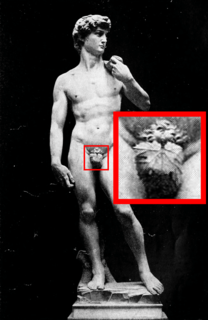
Freedom of the press or freedom of the media is the fundamental principle that communication and expression through various media, including printed and electronic media, especially published materials, should be considered a right to be exercised freely. Such freedom implies the absence of interference from an overreaching state; its preservation may be sought through constitution or other legal protection and security.

The Bofors scandal was a major weapons-contract political scandal that occurred between India and Sweden during the 1980s and 1990s, initiated by Indian National Congress politicians and implicating the Indian prime minister, Rajiv Gandhi, and several other members of the Indian and Swedish governments who were accused of receiving kickbacks from Bofors AB, an arms manufacturer principally financed by the Wallenberg family's Skandinaviska Enskilda Banken, for winning a bid to supply to India their 155 mm field howitzer. The scandal relates to illegal kickbacks paid in a US$1.4-billion deal between the Swedish arms manufacturer Bofors with the government of India for the sale of 410 field howitzer guns, and a supply contract almost twice that amount. It was the biggest arms deal ever in Sweden, and money marked for development projects was diverted to secure this contract at any cost. The investigations revealed flouting of rules and bypassing of institutions.
Cronyism is the practice of partiality in awarding jobs and other advantages to friends or trusted colleagues, especially in politics and between politicians and supportive organizations. For example, cronyism occurs when appointing "cronies" to positions of authority regardless of their qualifications. This is in contrast to a meritocracy, in which appointments are made based on merit.

The Janata Party was a political party that was founded as an amalgam of Indian political parties opposed to the Emergency that was imposed between 1975 and 1977 by Prime Minister Indira Gandhi of the Indian National Congress. In the 1977 general election, the party defeated the Congress and Janata leader Morarji Desai became the first non-Congress prime minister in independent modern India's history.

The Licence Raj or Permit Raj was the system of licences, regulations, and accompanying red tape, that hindered the set up and running of businesses in India between 1947 and 1990. Up to 80 government agencies had to be satisfied before private companies could produce something and, if granted, the government would regulate production. The term is a play on the "British Raj", which refers to the period of British rule in India. It was coined by Indian independence activist and statesman Chakravarti Rajagopalachari, who firmly opposed it for its potential for political corruption and economic stagnation, founding the Swatantra Party to oppose these practices.

Naresh Goyal is a non-resident Indian (NRI) businessman and founder Chairman of Jet Airways. He started operating Jet Airways in 1993 with initial seed money from Tail Winds incorporated, Isle of Man. Following the 2005 IPO of Jet Airways, Forbes magazine declared him the 16th richest person in India, with a net worth of US$1.9 billion. He currently does not feature on the Forbes list.
Gandhigiri is a neologism in India which is used to express the tenets of Gandhism in contemporary terms. The term became popular due to its usage in the 2006 Hindi film, Lage Raho Munna Bhai.

Shekhar Gupta is an Indian journalist and author. He is the founder and the current editor-in-chief of ThePrint. He is also a columnist for the Business Standard and pens a weekly column which appears every Saturday.

Zee News is an Indian Hindi-language news channel owned by Subhash Chandra's Essel Group. It launched on 27 August 1999 and is the flagship channel of the Zee Media Corporation.
Mass media in Pakistan provides information on television, radio, cinema, newspapers, and magazines in Pakistan. Pakistan has a vibrant media landscape; among the most dynamic in South Asia and world. Majority of media in Pakistan is privately owned. Pakistan has around 300 privately owned daily newspapers. According to the Pakistan Bureau of Statistics, they had a combined daily sale of 6.1 million copies in 2009. Television is the main source of news and information for people in Pakistan's towns, cities and large areas of the countryside. Marketing research company Gallup Pakistan, estimated there were 86 million TV viewers in Pakistan in 2009.

Censorship is the suppression of speech, public communication, or other information. This may be done on the basis that such material is considered objectionable, harmful, sensitive, or "inconvenient". Censorship can be conducted by governments, private institutions and other controlling bodies.
The economic liberalisation in India refers to the economic liberalisation of the country's economic policies with the goal of making the economy more market and service-oriented and expanding the role of private and foreign investment. Indian economic liberalisation was part of a general pattern of economic liberalisation occurring across the world in the late 20th century. Although some attempts at liberalisation were made in 1966 and the early 1980s, a more thorough liberalisation was initiated in 1991. The reform was prompted by a balance of payments crisis that had led to a severe recession and also as per structural adjustment programs for taking loans from IMF and World Bank.

Sainik SchoolKazhakootam, Thiruvananthapuram, Kerala, India, is a residential school for boys under the Ministry of Defence, Government of India, located approximately 18 km away from Thiruvananthapuram city beside Kazhakoottam - Venjarammoodu bypass and 1 km away from National Highway 66.

The premiership of Morarji Desai extended from 24 March 1977 to 15 July 1979. In the 1977 Indian general election Morarji Desai led the Janata Party to victory against the Congress party. Upon taking office, Morarji Desai became the first Indian Prime Minister not belonging to the Congress party.
Arnab Ray is an Indian novelist, blogger, podcaster who currently lives in the United States. While finishing his PhD at Stony Brook University, he started his blog with the name Random Thoughts of a Demented Mind, in August 2004, using Greatbong as his pen name. The blog focuses on satirical social and political commentary.
Yamini Aiyar is President and Chief Executive of the Centre for Policy Research (CPR), New Delhi, a public policy research think tank. She was appointed President of CPR in 2017. She was previously a senior research fellow and founder, in 2008, of the Accountability Initiative (AI) at the centre. Through Accountability Initiative, Yamini is credited with pioneering one of India’s largest expenditure tracking surveys for elementary education. She is also regular columnist in newspapers, such as The Hindustan Times, LiveMint, and The Indian Express'.
The Radia tapes controversy relates to the telephonic conversations between Niira Radia, a political lobbyist in India, the (then) Indian telecom minister A. Raja, and senior journalists, politicians, and corporate houses, taped by the Indian Income Tax Department in 2008–09. The tapes were leaked out to the press, and were eventually published by some media outlets and shown by television channels.

Josy Joseph is an Indian investigative journalist and author. He is the founder of Confluence Media, a platform-agnostic investigative journalism organization.

Black Warrant: Confessions of a Tihar Jailer is an Indian 2019 non-fiction book written by journalist Sunetra Choudhury and the former superintendent of Tihar Jail, Sunil Gupta. It traces some of the infamous criminals who served their time in the jail and were hanged. The book was published by Roli Books on 7 November 2019. The book shares controversial confessions of procedural lapses and corruption leading to a travesty of justice. It provides a step forward in a quest to understand the Indian prison system and provides fodder for further research into its corruption and injustices.

The Silent Coup: A History of India's Deep State is a 2021 book by Josy Joseph, an Indian investigative journalist. In this book, Joseph presents the argument that India's democratic ethos has declined due to the extensive use of government agencies towards political ends. Joseph points out that, while the political class of India has kept military power in check, the non-military security establishment are used by the political executive to subvert democracy for their own ends, including silencing the government critics or intimidating them. The Deep State in the title of the book refers to this non-military security establishment, which includes the police, intelligence agencies, the Central Bureau of Investigation, the National Investigation Agency, the Anti-Terrorism Squad etc. and some others such as the Enforcement Directorate, the Income Tax Department, and so on.













